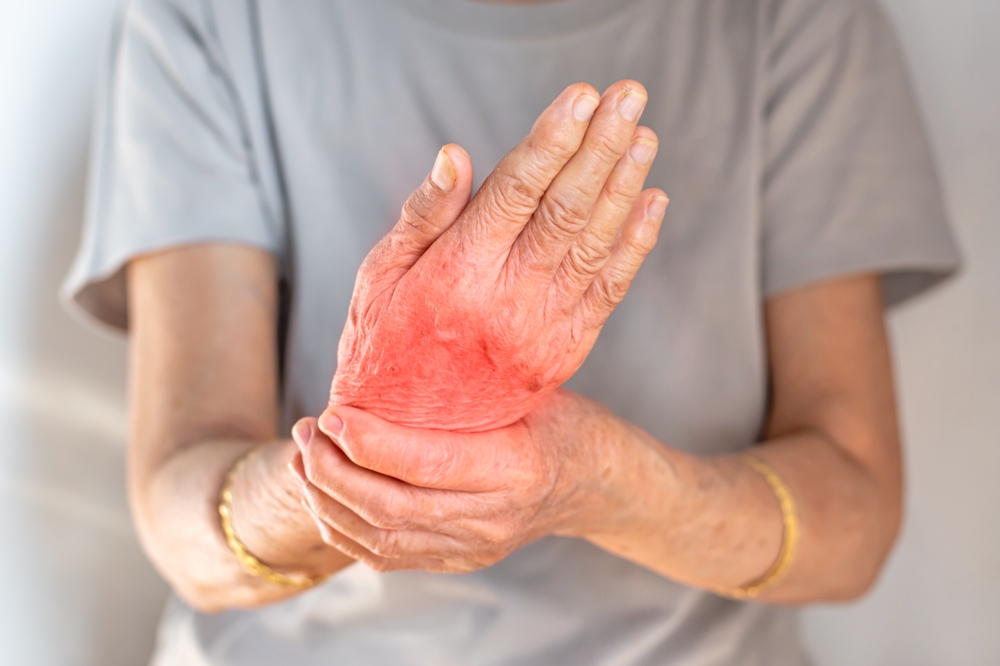

Knee Joint Swelling – Causes, Diagnosis, and Treatment at Emirates Hospitals Group
Knee joint swelling, also known as “water on the knee,” occurs when excess fluid accumulates around the knee joint, often causing pain, stiffness, and difficulty moving the knee. It can result from various factors, including injury, infection, or underlying medical conditions. A timely diagnosis and appropriate treatment are essential to alleviate symptoms and restore mobility.
Causes of Knee Joint Swelling
Knee swelling can be caused by several factors, including:
- Injury or Trauma: Direct injury to the knee, such as a fall, sprain, or ligament tear, can cause fluid to build up around the joint, resulting in swelling.
- Osteoarthritis: The breakdown of cartilage in the knee joint due to aging or wear and tear can lead to inflammation and swelling as the body reacts to the damage.
- Rheumatoid Arthritis: This autoimmune disorder causes inflammation in the joints, including the knee, leading to swelling, pain, and stiffness.
- Bursitis: Inflammation of the bursa, a fluid-filled sac that cushions the knee joint, can result in swelling, particularly after repetitive movements or prolonged pressure on the knee.
- Tendinitis: Inflammation of the tendons around the knee, often due to overuse or injury, can lead to swelling and discomfort.
- Infections: Bacterial or viral infections can cause knee swelling, often accompanied by redness, warmth, and fever.
- Gout: A form of arthritis caused by the accumulation of uric acid crystals in the joints, leading to sudden and severe knee swelling and pain.
- Fluid Accumulation: Conditions like synovitis (inflammation of the synovial membrane) or hemarthrosis (bleeding in the joint) can lead to fluid buildup around the knee.
- Increased Activity or Overuse: Intense physical activity, particularly in athletes or individuals engaging in repetitive motions, can lead to knee swelling and inflammation.
Symptoms of Knee Joint Swelling
Common symptoms associated with knee swelling include:
- Noticeable swelling around the knee joint, which may worsen with movement.
- Pain or tenderness in the knee, which may be sharp or aching.
- Stiffness or reduced range of motion, making it difficult to bend or straighten the knee.
- Redness, warmth, or a feeling of heat around the knee, especially if the swelling is due to infection or inflammation.
- A feeling of instability or weakness in the knee, making walking or standing difficult.
Diagnosis of Knee Joint Swelling
To determine the underlying cause of knee swelling, a thorough evaluation is required. Common diagnostic methods include:
- Physical Examination: A detailed examination to assess the degree of swelling, tenderness, warmth, and restricted movement in the knee.
- Medical History: Discussing any recent injuries, underlying medical conditions (such as arthritis or gout), or activities that could contribute to knee swelling.
- X-rays: Imaging tests to check for bone damage, fractures, or signs of arthritis and other joint abnormalities.
- MRI or Ultrasound: These imaging techniques offer detailed views of soft tissues, such as ligaments, tendons, and cartilage, to identify injuries or inflammation around the knee joint.
- Joint Aspiration: A procedure in which a needle is used to remove fluid from the knee joint for analysis. This can help diagnose infection, gout, or other underlying conditions.
- Blood Tests: Blood work may be done to check for signs of infection or inflammation (such as elevated white blood cell count or uric acid levels).
Treatment for Knee Joint Swelling in Dubai
At Emirates Hospitals Group, our orthopedic specialists provide personalized care for knee joint swelling, ensuring a comprehensive treatment plan tailored to your specific needs. Our goal is to relieve pain, reduce swelling, and restore function to your knee joint. Treatment for knee swelling depends on the underlying cause, the severity of symptoms, and the overall health of the patient. Common treatment options include:
- Rest and Ice: Resting the knee and applying ice can help reduce swelling and provide pain relief, especially in the case of recent injury or overuse.
- Medications: Nonsteroidal anti-inflammatory drugs (NSAIDs), such as ibuprofen, can help reduce pain and inflammation. If there is an infection or gout, antibiotics or specific medications may be prescribed.
- Physical Therapy: Targeted exercises can help strengthen the muscles around the knee, improve mobility, and reduce stiffness, particularly in cases of arthritis or tendonitis.
- Compression and Elevation: Using a knee brace or wrap to provide compression and elevating the knee can help reduce swelling.
- Drainage: If there is significant fluid buildup in the knee, joint aspiration (removing fluid with a needle) may be performed to relieve pressure and reduce swelling.
- Corticosteroid Injections: In cases of severe inflammation or arthritis, corticosteroid injections may be administered directly into the knee joint to reduce swelling and pain.
- Surgical Interventions: In cases of severe injury, such as ligament tears, or chronic conditions that do not respond to conservative treatments, surgery may be required to repair or replace damaged tissues.
- Lifestyle Modifications: Maintaining a healthy weight, avoiding excessive physical strain, and using proper techniques during physical activity can prevent further knee swelling and improve overall joint health.
Related Treatments
Request an appointment
Please complete the details and we will book you shortly.
